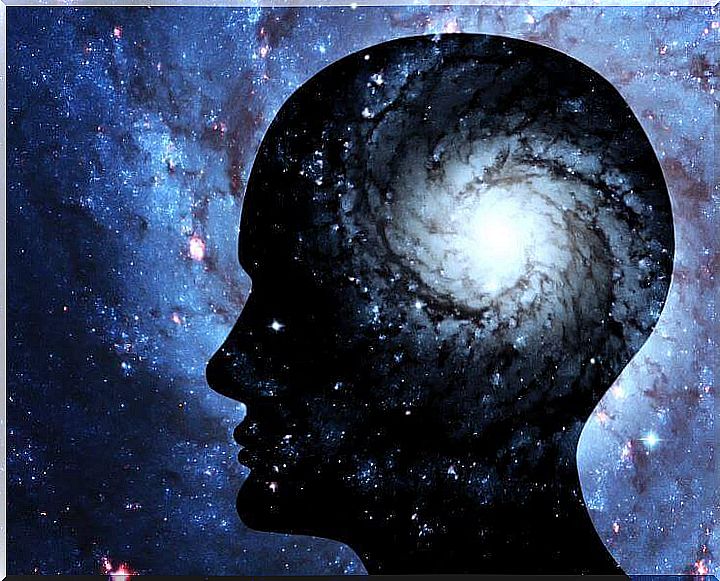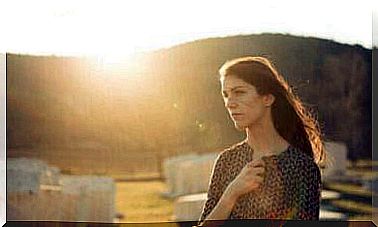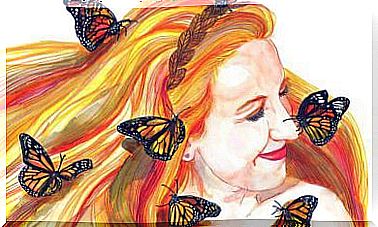Consciousness And Conscious, What Makes Them Different?
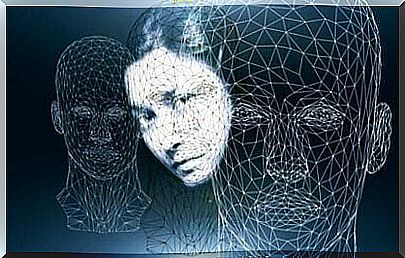
Although consciousness and conscious are very similar phonetically, they do not have the same meaning. It is not the same to say “I have a clear conscience” and “I am conscious after having received a blow and I am aware of all the stimuli that surround me”. The first term is very important in the field of philosophy while the second is still a challenge for neuroscience today.
The molecular biologist and Nobel Prize winner Francis Crick, often praised the importance of knowing how to differentiate these two dimensions while knowing full well that we would continue to have difficulties to define these two concepts. They are relatively complex entities, especially what refers to the conscious.
We can sometimes find ourselves in ambiguous linguistic situations. This can lead us to be wrong. In fact, while it may surprise us, it is very common to get it wrong. In some publications, some authors have already confused terms.
So let’s take a look at the nuances and particularities that define each of these dimensions.

Consciousness and consciousness: characteristics and singularities
If we were to use a basic and general definition to differentiate between consciousness and conscious, it would be this: Consciousness allows you to be a part of your reality, to perceive every nuance, stimulation and internal process. Conscience allows you to behave in a moral and socially acceptable manner.
In general terms, it certainly seems understandable or even simple to differentiate the two concepts. However, when someone tells us “ I am aware of my actions, ” is he referring to the moral aspect, to perception, or to both? In this case, we place ourselves on a subjective level where everything depends on what the sender wishes to express.
What is consciousness?
The mathematician and philosopher Blaise Pascal said that conscience is the best moral book we have. She is not mistaken. This reality refers to the ability we have to know which actions, thoughts, words and situations are correct and which are not.
It is a moral and ethical concept. However, it is important to stress that it has some considerations that are worth keeping in mind.
- Consciousness has nothing to do with processes such as attention or perception
- Philosophers like Descartes and Locke have tried to deepen the subject in order to understand the relationship between, for example, consciousness and language, thought and intelligence.
- We must bear in mind that one of the notable differences between consciousness and consciousness is associated with the fact that consciousness represents for philosophers a “virtue”.
- When we say that someone “is aware”, we value that person by emphasizing that he or she has moral values. We refer to her as someone attempting to live according to basic standards of respect and balance. Sometimes we even say that animals show “conscience” because they adopt moral or “social” acts that remind us of certain human virtues.
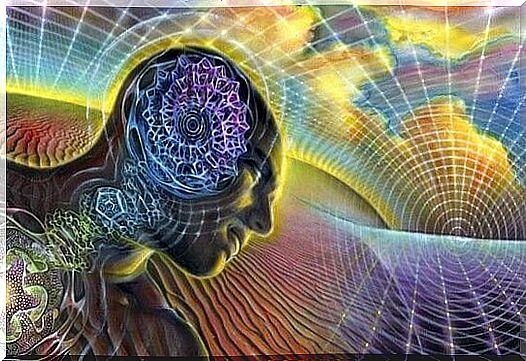
What is the conscious?
Consciousness is more than just being awake, having our eyes open, and being part of the sensitive reality around us. William James, father of North American psychology, was one of the first authors to approach the understanding of this difference between consciousness and conscious. As a philosopher, psychologist and scientist, he defined the conscious with a series of characteristics that allow us to better understand the concept:
- The conscious is subjective. It has nothing to do with the ethical or moral side. It is a personal process in which an individual is aware of their own thoughts and internal reality.
- Consciousness is associated with thought. It is for this reason that there is constant change. It’s a whole that never freezes. The conscious mind constantly processes information and responds to stimuli.
- So the conscious can be very selective. At some point, we may decide to direct our attention to an aspect (internal or external) in order to separate it from the rest of the stimuli and to make contact only with what interests us.
The conscious is the greatest enigma of the human being
Christof Koch is a North American neuroscientist and one of the foremost experts in the study of consciousness and its neural bases. In books such as “ In Search of Consciousness: A Neurobiology Investigation , ” he asserts that the main difference between conscious and consciousness is that consciousness is still an enigma.
Consciousness is associated with a sense of responsibility, with values and with everyone’s knowledge of their own person and their actions.
This scientist also tells us that there are two types of consciousness that we need to know:
- The primary conscious. It is linked to our perceptions, our feelings, our memory, our reasoning, our dreams, our desires ... It is all that allows us to separate ourselves from what surrounds us and define our individuality.
- The reflective consciousness. This dimension is perhaps an area as interesting as it is stimulating. It is associated with “the observation of the own mind”. Knowing who we are, what we know, what is happening in our interior.
In conclusion, we now know that consciousness and consciousness are two terms that are both complex and interesting. They are also the pure product of the mind. This is what makes us human. As Thomas Huxley said, these are the entities that allow us to be “aware” of the fact that we are more than bones, muscles, cells and the skin that surrounds it all.
